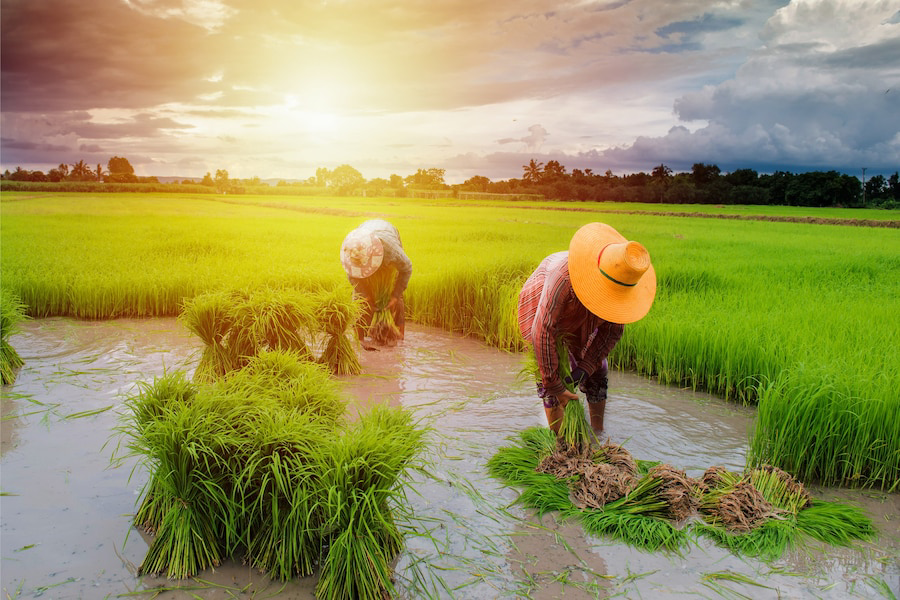Throughout human history, few questions have been as important as this: what made agriculture so vital to the development of civilization? This question takes us on a fascinating journey through time as we examine how our ancestors transformed from wandering hunters and gatherers to settled farmers. This article will explore how the agricultural revolution changed the world forever and what that means for us today. We’ll look at how farming shaped human society and allowed us to build the cities, governments, and cultures we know today. So, join us for a deep dive into the past and discover how agriculture changed the course of human history.
The Agricultural Revolution: A Turning Point in History
The agricultural revolution was a watershed moment in human history. It marked the shift from a nomadic lifestyle, where communities roamed for food, to a more settled and organized way of life. The development of agriculture allowed people to stay in one place, cultivate crops, and raise livestock. But why was agriculture important to the development of civilization?
Agriculture can be seen as the spark that ignited the flame of civilization. The ability to cultivate crops provided a consistent food source, leading to stable communities. With surplus food, populations grew, allowing for specialization in various fields. This led to the emergence of skilled trades, governance, and a more complex societal structure.
One of the key elements in the rise of civilization was the surplus of agricultural production. When food was no longer a daily struggle, communities could divert their energy towards other endeavors. The surplus could be traded or stored with ample food supplies, ensuring a safety net against famine.
The development of agriculture necessitated permanent settlements. Villages and towns sprang up around arable lands, creating hubs of human activity. This shift to settled life enabled the development of social structures, and communities began to organize themselves in more complex ways.

The Economic Impact
Agriculture’s impact on the economic landscape was profound. It transformed not only how people lived but how they interacted with the world around them.
Agriculture played a pivotal role in fostering trade and exchange. With surplus crops and goods to barter, civilizations began to engage in commerce. This created a network of trade routes connecting different regions and cultures. For example, the Silk Road became a famous conduit for exchanging goods, culture, and ideas.
The need for a medium of exchange led to the development of currency. Commodity money, such as grains or cattle, evolved into standardized forms like coins. Currency facilitated trade and allowed for more efficient transactions.
Agriculture enabled economic specialization. People no longer had to be self-sufficient; they could focus on a specific trade or craft. This diversification resulted in the development of skilled professions and a more complex division of labor within societies.
Social and Cultural Impact
The transformation brought about by agriculture wasn’t limited to the economic sphere. It had far-reaching implications for culture and society.
With the stability and surplus provided by agriculture, societies had the time and resources to invest in cultural pursuits. Art, literature, music, and architecture thrived, leaving a rich cultural legacy.
Agriculture paved the way for the development of writing systems. As societies grew more complex, so did their need to record information. Early writing systems, such as cuneiform and hieroglyphs, emerged to keep track of agricultural resources and transactions.
The impact of agriculture extended into the realm of religion and spirituality. Many ancient belief systems incorporated agriculture into their cosmologies, with rituals and festivals tied to planting, harvesting, and the cycles of nature.
Environmental Impact
Agriculture also had profound consequences for the environment, some of which are still felt today.
The need for arable land led to the clearing of forests and the draining of wetlands. This transformation of landscapes had lasting effects on ecosystems and biodiversity.
Agriculture marked the domestication of plants and animals. This process significantly altered the genetic makeup of these species, leading to the creation of new varieties of crops and breeds of livestock.
The expansion of agriculture contributed to climate change. The increased use of land and resources, such as water and energy, has led to ecological imbalances and the release of greenhouse gases.
 The Role of Agriculture in Empires and Civilizations
The Role of Agriculture in Empires and Civilizations
Agriculture was not just a catalyst for civilization but a defining element of numerous empires and societies throughout history.
The Egyptian civilization, often called the “Gift of the Nile,” was heavily reliant on the annual flooding of the Nile River for agriculture. The fertile silt left behind by the floods allowed for the cultivation of crops and sustained one of the most iconic ancient civilizations.
Mesopotamia, located between the Tigris and Euphrates rivers, is often called the “Cradle of Civilization.” Its agricultural practices, including using irrigation systems, were foundational to developing urban centers.
Ancient China made significant agricultural advancements, including the invention of the plow and rice cultivation. These innovations helped sustain the vast population of China and contributed to its cultural and technological development.
The Inca Empire in the Andes Mountains practiced terrace farming to maximize arable land in challenging terrains. This engineering feat allowed them to support a large population at high altitudes.
The Roman Empire’s success was built on its advanced agricultural practices. Using aqueducts, crop rotation, and innovative farming techniques played a crucial role in the empire’s expansion and longevity.
Conclusion
In conclusion, the question “Why was agriculture important to the development of civilization?” can be answered with a multifaceted response. Agriculture was the spark that ignited the rise of civilization, transforming human existence in profound ways. It led to the formation of permanent settlements, economic specialization, and the flourishing of culture and society. Its environmental impact, both positive and negative, continues to shape the world. Agriculture was not just a pivotal moment in history; it was the very foundation upon which the edifice of civilization was built. As we look back at our species’ long and complex history, it becomes abundantly clear that agriculture was, and still is, one of the most vital forces shaping the world we know today.
